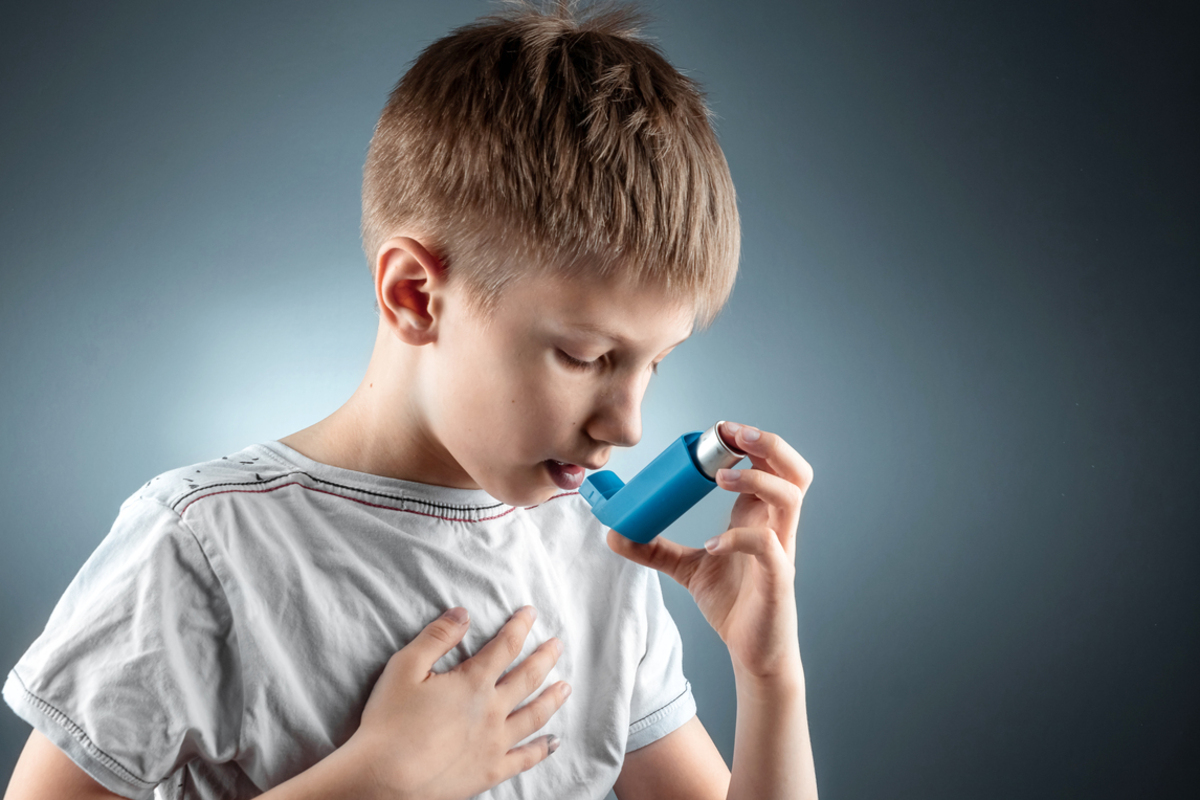More than 250 million people suffer from asthmatic conditions around the world. Although asthma can affect people of all ages, reports suggest that children suffer from it at almost three times the rate of adults.
The exact cause of asthma remains unknown, but it is believed to be triggered by environmental factors (allergens) with some hereditary component as well.
When a patient gets an asthma attack, he or she suffers from symptoms like shortness of breath, coughing, and headache. The patient feels their throat tightening and has difficulty in breathing. There is increased production of mucus and tightness of chest. Asthma can be triggered by various factors — like certain types of foods, dust, smoke, pollens, sudden changes in temperature, and heavy exercises.

How is asthma managed?
Depending on the severity of the condition, the management of asthma can include daily medication or pumps that provide quick relief during an asthmatic episode. These medications generally contain steroids that prevent a hyper response to a triggering factor, thereby relieving the symptoms of an attack.
Side effects of asthma medicines
Side effects of inhalers and pumps are common, but mild in nature. These medications may cause mild headaches, tremors, a dry mouth, and redness of the mouth. But these side effects tend to wear off very quickly. Long-term therapy may show side effects like weight gain, muscular weakness, osteoporosis, and others.
How asthma and its medicines may affect your child’s oral health
Asthma makes normal breathing difficult at times, and that is why children tend to have a habit of mouth breathing. This, along with the use of inhalers and other asthma medication leads to drying of the mouth. Mouth breathing can cause misalignment of the teeth, make the gums more prone to inflammation, and cause bad breath as well.
Saliva plays an important role in maintaining oral health as it helps clear the teeth of a sticky layer known as plaque. Plaque formation is the first step leading to other problems like cavities in teeth, bad breath and gum problems like bleeding and swollen gums. Repeated and long-term use of inhalers containing sweeteners can cause an increased occurrence of dental cavities.
Most inhalers contain steroids to suppress the asthmatic attacks. These steroids can destroy the "good bacteria" in the mouth and lead to fungal infections and ulcers in the mouth.
How to minimize the risk that your asthmatic child will develop dental problems?
- The use of inhalers containing sweeteners should be avoided or their use should be limited. You can consult your physician if you find that a certain type of inhaler is causing dental problems, and they can probably move you to an alternate medication.
- After the use of inhalers, it is advisable to gargle with clean water to remove the remnants of the medication thereby minimizing the side effects.
- Drinking water frequently during the day helps prevent the mouth from drying out and reduces the associated risks. In case your child still suffers from dry mouth, you can start your child on artificial saliva substitutes with the advice of your dentist.
- Regular visits to the dentist will help to catch problems at the onset and allow the dentist to treat them at the earliest.
Role of dentists in helping maintain your child’s oral health
Dentists should educate children and their parents on proper brushing and flossing techniques, which will help them take proper care of their oral hygiene.
Regular and thorough check-ups should be done to identify cavities and gum problems and should be treated promptly. Regular cleaning of teeth by the dentist (scaling) can help to remove layers of plaque and tartar which tend to develop on teeth.
Habits like mouth breathing should be treated with orthodontic appliances.
Applying fluoride solution on teeth can help limit the cavities in teeth and is highly recommended in asthmatic children.
What care can you take during dental appointments and procedures?
Your child having an asthma attack during a dental procedure can be a nightmare as a parent. Be sure to inform your dentist if your child suffers from asthma before starting any dental procedure. If you know what triggers your child's asthma attacks, inform the dentist about the known triggers so that the risk of an attack can be minimized.
Carry all the medications and importantly, the inhaler, during the appointment so that it can be used in case of an emergency. Your dentist might suggest using the inhaler as a precaution before starting the treatment.
Most importantly, be calm yourself and make your child comfortable before the appointment so that they are not stressed out during the procedure.


Your thoughts on this